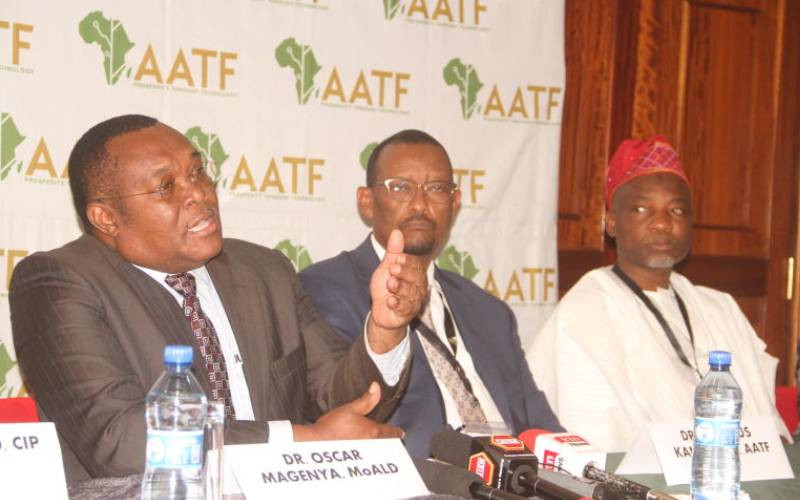
African Agricultural Technology Foundation (AATF) and the Ministry of Agriculture recently unveiled the inaugural African Conference on Agricultural Technologies (ACAT), a platform that seeks to advance African agricultural technology transfer to boost food productivity.
AATF Executive Director Canisius Kanangire spoke to Jacob Ng'etich about how the new platform will transform the use of agricultural technologies on the continent. (AATF, provides farmers in Africa with practical technology solutions to overcome farm productivity constraints)